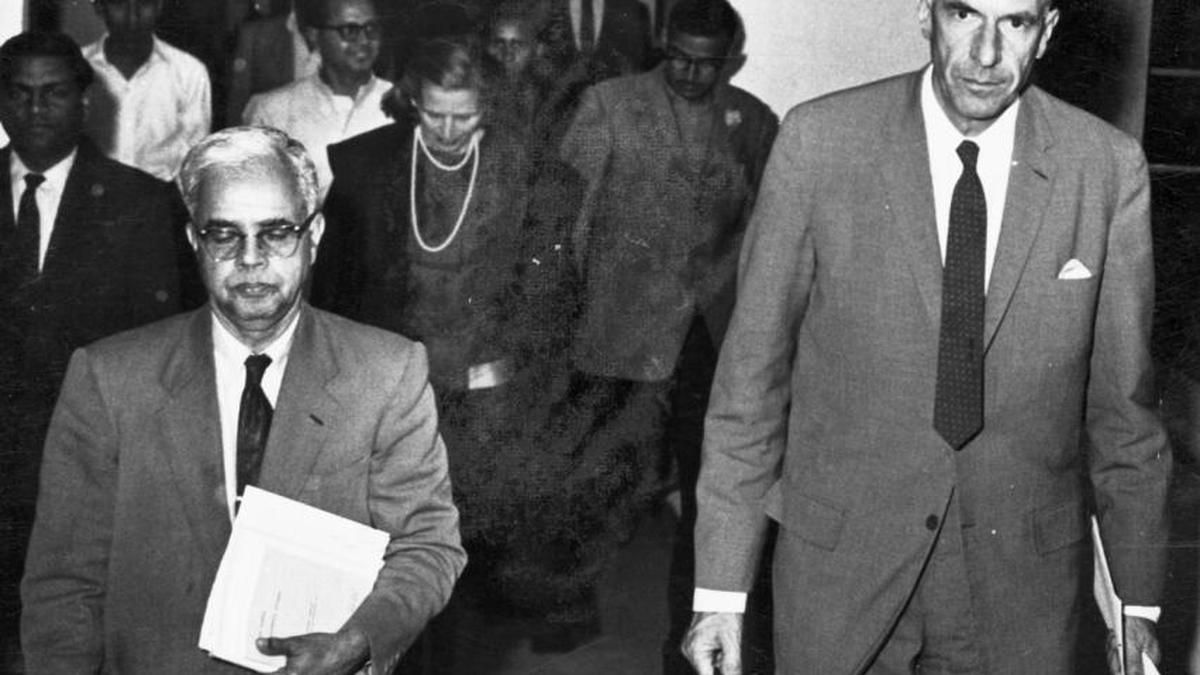 Image Source: The Hindu
Image Source: The Hindu
The School of International Studies (SIS) at Jawaharlal Nehru University has entered its 70th year, celebrating a legacy that has shaped India’s foreign policy thinking, trained generations of diplomats, and positioned itself as a beacon of global scholarship. Established in 1955 as the Indian School of International Studies under the Indian Council of World Affairs, SIS has evolved into one of Asia’s most respected institutions for international relations and area studies.
The anniversary celebrations, which began earlier this year and continue through a series of lectures, workshops, and commemorative events, reflect the school’s enduring commitment to academic excellence and policy relevance.
Key Highlights of the 70th Anniversary
SIS was founded in 1955 and merged with JNU in 1970, becoming its oldest academic school.
The school has produced influential alumni including Finance Minister Nirmala Sitharaman and External Affairs Minister S. Jaishankar.
A special lecture series and the Pandit Hriday Nath Kunzru Memorial Lectures 2025 are part of the celebration calendar.
SIS has pioneered area studies in India, focusing on Asia, Africa, Latin America, and the Global South.
Historical Foundations and Vision
Origins and Early Leadership
The school was conceptualized by Hriday Nath Kunzru and Tej Bahadur Sapru, with Dr. A. Appadorai as its first director.
It was inaugurated by India’s Prime Minister and Vice President, signaling the importance of intellectual infrastructure in shaping foreign policy.
Initially affiliated with the University of Delhi, SIS became part of JNU in 1970 under Vice-Chancellor G. Parthasarathi, who envisioned it as an Asian counterpart to Harvard’s Kennedy School.
Intellectual Decolonisation
SIS broke away from Euro-American academic frameworks, embracing area studies and regional expertise.
Its scholars developed independent perspectives on global affairs, contributing to India’s strategic autonomy.
The journal International Studies, launched in 1959, gave voice to the Global South and remains a respected publication.
Academic Contributions and Programmes
SIS offers four M.A. programmes: Politics (International Relations), Economics (World Economy), International Relations and Area Studies, and the newly launched International Relations - West Asian Studies.
The school discontinued its M.Phil. programme in 2021 after awarding over 4,700 degrees in five decades.
Its interdisciplinary approach blends political science, economics, law, and history, preparing students for careers in diplomacy, academia, and global governance.
Policy Impact and National Relevance
SIS faculty have shaped debates on non-alignment, nuclear policy, regionalism, and multilateralism.
During key moments in India’s history—the Bangladesh Liberation War, Sri Lankan crisis, and nuclear tests—SIS scholars provided critical analysis and strategic insight.
The school continues to influence policy through research, advisory roles, and public discourse.
Commemorative Events and Future Outlook
The 70th Anniversary Lecture Series has featured global scholars like Prof. T.V. Paul and Prof. Joseph A. Kéchichian.
Workshops on migration, global governance, and regional security are being held throughout the year.
The school plans to expand its international collaborations and digital learning platforms to reach a wider audience.
Conclusion
As the School of International Studies at JNU celebrates 70 years, it stands as a testament to India’s intellectual ambition and global engagement. From its roots in post-independence idealism to its current role in shaping strategic thought, SIS continues to be a crucible where ideas meet action. With a legacy of excellence and a vision for the future, the school remains central to India’s journey as a global thought leader.
Sources: The Hindu, Jawaharlal Nehru University Official Website, SIS JNU Online YouTube Channel
Advertisement
Advertisement




